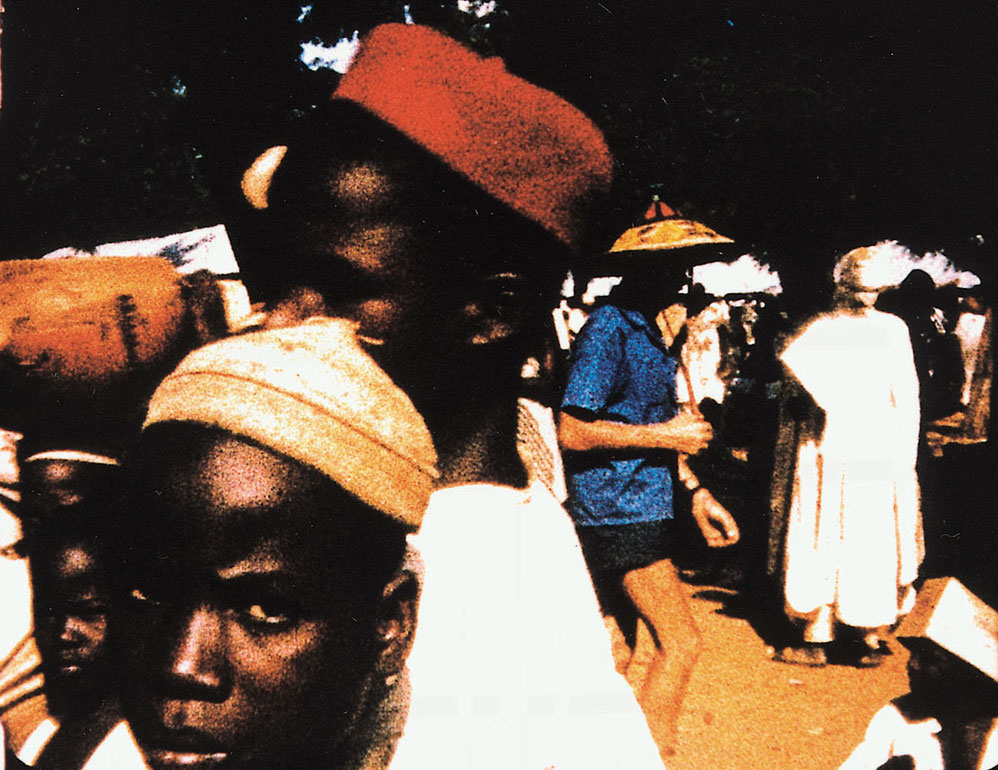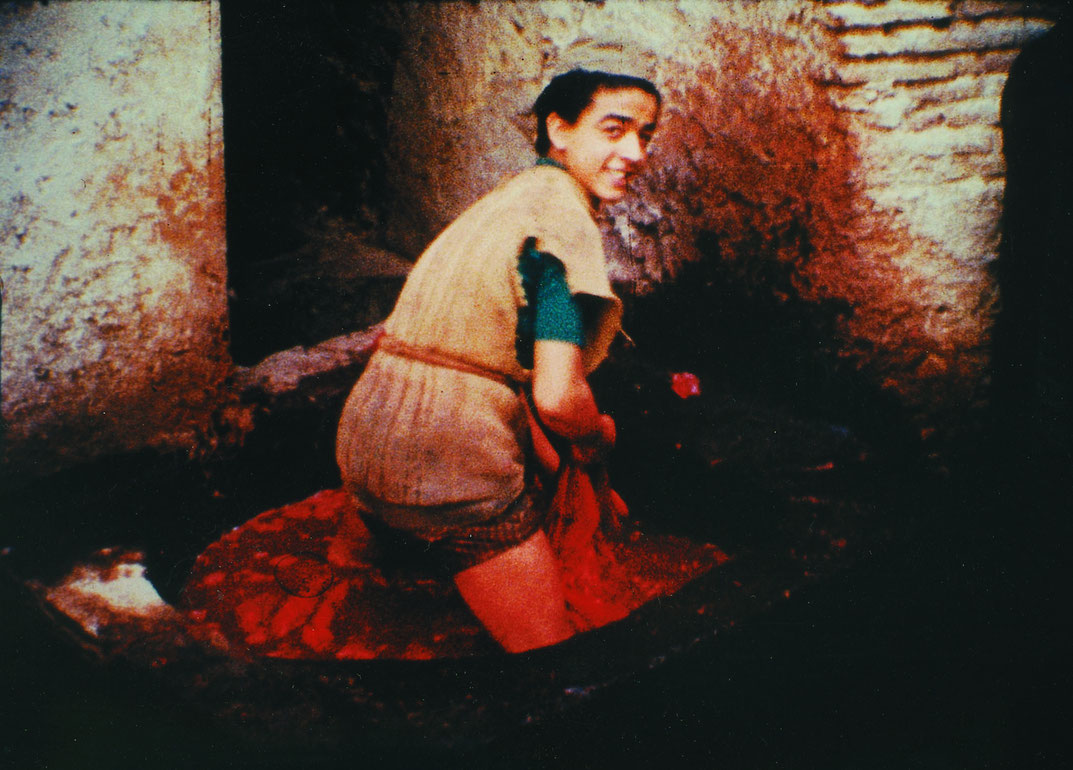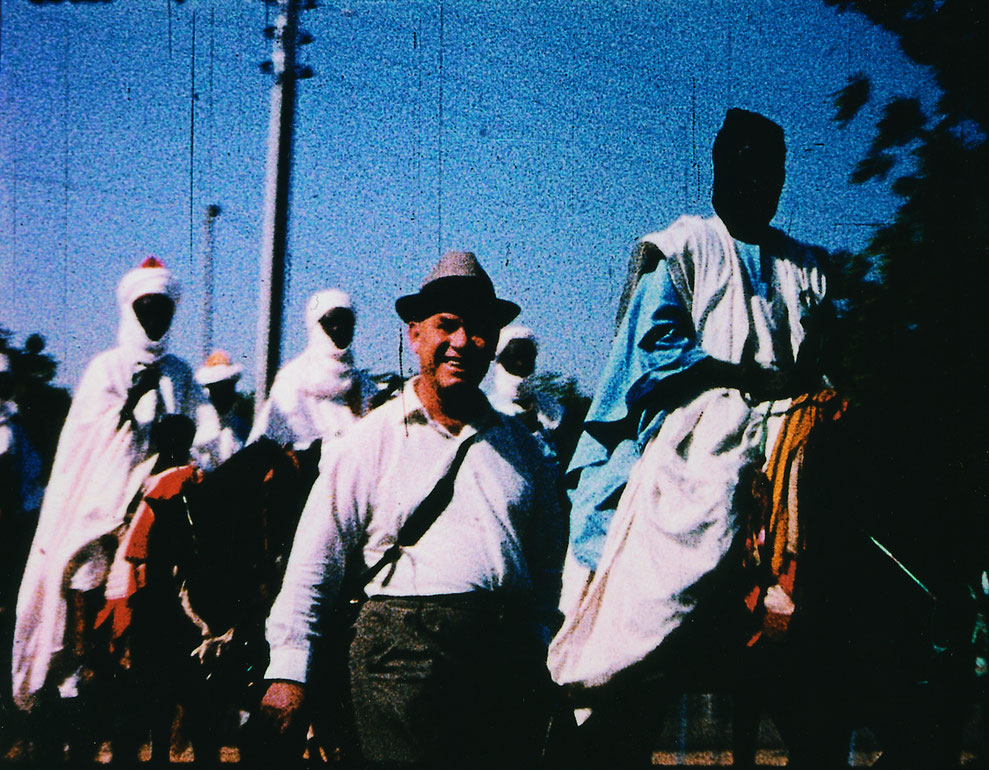déjà vu
Somewhere in a subtropical country white visitors crowd around dark-skinned plantation workers emptying their harvest baskets. They look curious, as if wanting to test the quality of the tea leaves. Everywhere tourists take out their cameras – whether in front of large animals in the wild or camel riders, whether in the face of decorated human bodies or daily work routines.
Now and again they look into the camera themselves. For later, for when they will proudly show their "exotic" finds at home. This posing contains a model of western travels and picture making which is over a century old.
The fascinated gaze on the foreigners fixes them in pre-formed frames. Lisl Ponger follows the trail of that gaze by taking amateur found footage material and linking it together in new ways. She summons up atmospheric background sounds and adds a series of voices. With a subtle distance to the visual foreground, those people who are pictured in the west as much more homogenous than they are have the word – in the diverse languages of the "other". They tell, untranslated, of their experiences with various forms of colonialism – whether as subjects in their own countries or as the expelled and transformed "foreigner".
Lisl Ponger strings the shots together on a thread, a red one – both in the chromatic and symbolic sense. The sound helps these pictures from the continents of the southern hemisphere to resonate with narrative character. The voices are not allowed to domainate the images, but déjà vu takes a risk by letting the multiplicity of languages speak for themselves. It is a film which does not impart security but poses questions. (Christa Blümlinger)
watch the movie online @ MUBI.com



